Most people in the world of stone and others too normally associate Macael in the province of Almeria with the multinational Cosentino, which has its headquarters and main manufacturing units located there. Often overshadowed, not very well known outside Spain, there also exists another very sophisticated industry in the area of craftsmanship in marble with a great tradition going back centuries.
Modern craftsmanship
Craftsmanship is usually associated with labour intensive artisan work in the world of stone, and that has perhaps been true till recently in Spain, and is still valid for many emerging markets such as Rajasthan in India where the labour costs are much lower. But the craftsmanship industry in Spain where labour costs are of the level of a developed country, the industry has forcefully upgraded to the next stage and a more appropriate way to describe it would be to call it Industrial Craftsmanship.
Modern craftsmanship not only means intensive use of sophisticated CAD/CAM machines and CNC machines. More than anything, as Mr. Ramón Arriaga defines it, modern craftsmanship means using the power of thinking and intelligence of the person to adapt to what the technology permits.
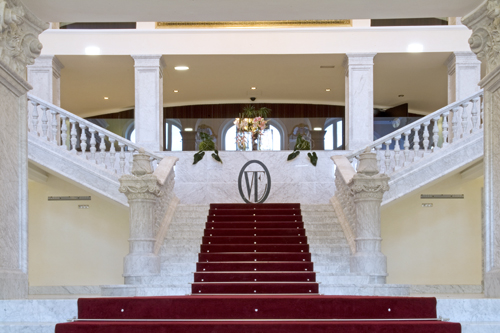
Changing focus of industry
The severe economic crisis in Spain, lasting almost a decade, took a heavy toll on the craftsmanship industry in Macael (as it did to almost every sector of the country’s economy). Before the crisis, the industry focused almost entirely on the local market, which was booming and, as we now know, was very clearly in bubble territory. That was a time when selling was not really necessary, the orders would just keep coming, one after another. The industry was well equipped with the most sophisticated machinery available,: the 5 axis CNC machines, waterjet, etc. and there were enough skilled people to make the best use out of these machines. Previously, the industry depended too heavily on public sector projects in Spain, now the emphasis has shifted towards orders from the private sector and from outside Spain. The companies are nowadays doing more of luxury hotels and upmarket homes, for example. The post-crisis industry, having learned its lessons the hard way, is much more sensitive towards making commercial efforts and focusing on international markets.
The international markets in which the companies have a presence, are very diversified. Be it United States, Russia, the European Union countries or the Middle East, the Spanish companies are now active and exploring possibilities everywhere.
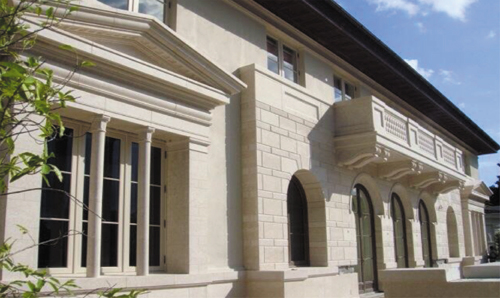
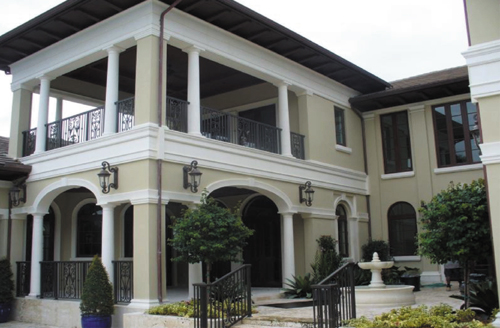
Materials for working
The materials with which the companies work are varied too, and they are not just locally available stones - It could be Crema Marfil for a project, or it could be Capri, or some limestone from Portugal, France or Italy. Roman travertine, sandstone Floresta, all have been worked on by the local companies. However, it is predominantly craftsmanship in marble, not granite.
Type of clients
Some clients for this type of projects usually have a very clear idea of what they want. The contribution of the stone processing company is mostly to provide technical support and manufacture what is needed. Other clients, architects in particular, ask for opinion regarding different materials and the possibilities with each material, the finishes that could be made. But it is technical support that a company is able to provide that is a key factor.
The comparison with Italy
How is the craftsmanship industry in Macael different from that in Italy, which seems to be better known? The general consensus is that in terms of processes, finishes achieved or materials with which the companies are able to work, there is no difference at all. Italian companies, overall, do tend to be bigger in size compared to the Spaniards, who are only now emerging from the severe and long crisis that hit the country and which forced them to downsize. The Italians have the brand and that is something that has its weight, and the Italian companies seem to better positioned in the market for special projects. Wherever the Spaniards go they find the Italians are already present. But when they compete, Mr. Bienvenido, of Crumar Projects asserts, the customers soon discover that companies from both countries are equally competent. Price in this kind of special projects is usually not a determining factor in many kind of projects, though the Spanish companies can be somewhat cheaper. The Italian companies perhaps do work with a wider range of materials. The problem for the Spanish companies, as Mr Diego Martinez of Cuellar Stone puts it, is Macael is not so well known in the world known for doing projects.
There used to be a time, not so long ago, when the Spanish craftsmanship companies were noted for their Andalusian flavour, reflecting the centuries old tradition of the area where Blanco Macael was the source of their great historical creations. The companies, now operating in the global markets, seem to have grown beyond this inherited culture, and are much more flexible and sensitive towards interpreting the culture, tradition and needs of the global client.

Contrast with other countries
How does the industry differentiate from that which exists in countries like Turkey, India or China, all countries with a culture and tradition of craftsmanship in natural stone? As Mr. Bienvenido, of the company Crumar Projects puts it, the market is much more demanding for Italy and Spain in terms of sophistication.
Size of industry
Currently there are about 400 people employed in this industry. Average company size is small, with only 5 companies employing more than 25 people. Rest of the companies employ less than 10 people each.
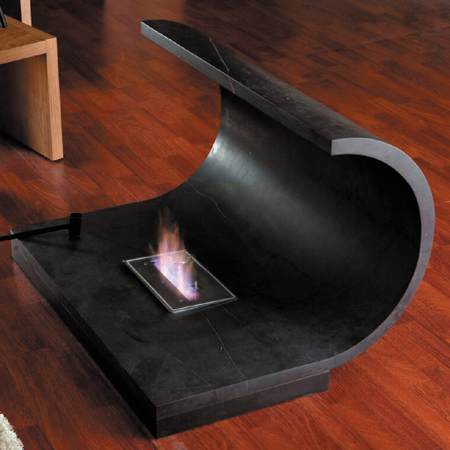
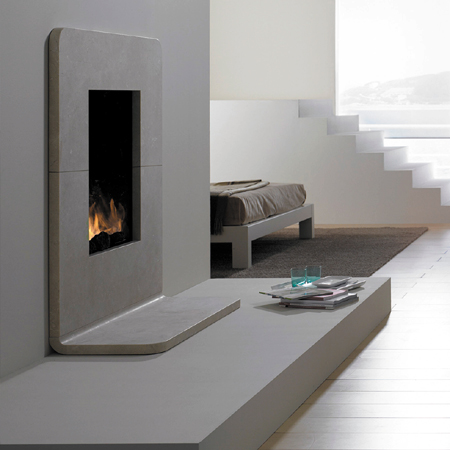
The challenges ahead
There is a general recognition that the Spanish craftsmanship industry could evolve further in several aspects. The industry is perfectly capable of making high quality balustrades, for example, but, as Mr Ramón Arriaga puts it, it should now be designing and offering a different kind of balustrade. New products of higher value that could also generate greater volume are badly needed so that there is more stability and continuity in the production processes. The preference for “minimalism” in the West is also something that the Spanish craftsmanship could incorporate better in its designs of different products.
MAJOR PROJECTS DONE IN RECENT YEARS
- Gran Hotel Miramar, Málaga (Spain). 5 star hotel.
- Theatre Victoria Eugenia of San Sebastián, Spain (Blanco Carrara).
- Library of Kansas City, U.S.A. (Blanco Macael).
- Headquarters of Sprint, Kansas City, U.S.A. (Rosa Levante).
